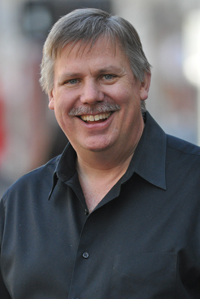"As an ensemble teacher I would say that my teaching is very performance-oriented. My goal is a successful performance at the end of the semester, greatly emphasizing memorization skills and repertoire. I put a very heavy emphasis on ensemble playing—playing with each other and prioritizing the group over the individual. Sometimes you find students with a very high level of skill who need to work on listening to one another and directing their energy into the best possible ensemble performance instead of the best possible solo."
"I continually point out the way that ear training relates to other classes. I feel that those correlations are an integral part of the education at Berklee—that the classes all fit together and complement each other. Success in an ear training class will make them far more successful as harmony students, as arranging students, and as performers. In general, ear training will make them a more a literate musician. It will enable them to hear what they see, write what they hear, and play what they hear."
"I play all the time. That's really where my perspective comes from. I usually do about four or five gigs a week, and I try to bring that experience to my students and tell them what's been useful to me. There are a lot of different types of work to do. Usually when you're performing with famous people, you're playing a part; it's very reading-oriented and it requires a high level of craft and skill. Whereas when you're playing with a trio it's a very different set of skills. It's more improvised, or you're drawing upon repertoire that you've learned. It's great to have experience in both of those areas."

